Introduction
Gombe State University is an important institution of higher learning in Gombe State, Nigeria, playing a key role in education, scientific research and social development in the local and surrounding areas. The school focuses on the organic combination of knowledge transfer, academic research and social services.
Overview
Student size: The school has a certain size of student population, including undergraduates and postgraduates. The specific number will vary depending on factors such as enrollment, but the overall size is growing, creating an active academic atmosphere on campus.
Discipline: Provides a wide range of subject area courses, covering humanities and social sciences (such as history, sociology, political science, etc.), natural sciences (such as mathematics, physics, chemistry, etc.), medicine, engineering, agriculture and other fields, providing students with a variety of professional choices.
History and establishment time
Gombe State University was established in 2004 and is one of the newer universities in Nigeria. Its establishment is an important measure taken by the Gombe State Government to improve the local education level and cultivate local talents.
School strength
Faculty: It has a professional teaching team, including experienced professors, lecturers, etc. The school focuses on the professional development of teachers and encourages teachers to participate in academic exchanges and training at home and abroad to enhance their teaching and scientific research capabilities. These teachers provide students with high-quality teaching and guidance in their respective disciplines.
Research achievements: Actively carry out scientific research activities in multiple disciplines. In agricultural research, research is conducted on local crop planting and animal husbandry to improve agricultural production efficiency; in the field of medicine, topics such as the prevention and treatment of common local diseases are also explored. The school also encourages teachers and students to publish academic papers, participate in academic conferences, and display scientific research results.
International cooperation: Actively establish cooperative relations with some international universities and institutions. Through student exchange programs, teacher visits, joint scientific research and other activities, broaden the international vision of students and teachers and enhance the international reputation of the school.
Nature of the institution
This is a public university funded and managed by the Gombe State Government. As a public university, it has important responsibilities in promoting the popularization of local higher education and serving social development.
Educational philosophy
Focus on cultivating students' comprehensive qualities and emphasize the combination of academic knowledge and practical skills. With the goal of cultivating talents who can contribute to social development, students are encouraged to actively participate in social practice, community service and other activities. At the same time, we focus on cultivating students' innovative and critical thinking, so that students can think independently and solve problems in their future work and life.
Key laboratories and disciplines
Key disciplines: Medicine and agriculture are the more prominent disciplines of the school. The medical profession has trained a large number of professional talents for the local medical and health care industry, and plays an important role in disease diagnosis, treatment and prevention; agricultural disciplines play an important supporting role in local agricultural modernization and rural economic development.
Key laboratories (if any): There are medical laboratories equipped with basic medical testing equipment for disease diagnosis, pathological research, etc. in teaching and scientific research; agricultural experimental bases are used for scientific research activities such as crop planting experiments and agricultural technology demonstrations.
Faculties and colleges
The school has several colleges, such as the School of Medicine, the School of Agriculture, the School of Humanities, the School of Science, the School of Social Sciences, the School of Engineering, etc. Each college contains multiple specific departments and majors. For example, the School of Medicine has a Department of Clinical Medicine and a Department of Nursing, etc., to provide students with systematic subject education.
Ranking
It is in a rising stage in the domestic university rankings in Nigeria. Although it may not be prominent in the international rankings at present, its influence in the local and regional scope is gradually increasing.
Fees
Tuition fees: For Nigerian students, tuition fees are relatively low, and the state government will provide certain funding policies. For international students, tuition fees will vary according to different majors and degree levels, but generally speaking, they are still relatively reasonable compared to universities in some developed countries.
Living expenses: The cost of living in the area is moderate, and students' living expenses mainly include accommodation, food, transportation, etc. The school may provide student dormitories, and the accommodation costs vary depending on the dormitory conditions; there are many local options for food, and the prices are relatively reasonable; transportation costs are also within an affordable range.
Campus environment
Architectural style: The campus buildings combine modern architectural styles with local characteristics. The teaching buildings, libraries and other buildings are reasonably designed and fully functional, providing students with a comfortable learning space.
Campus facilities: It has complete teaching facilities, including modern classrooms, laboratories, libraries (collections cover various disciplines), computer centers, etc.; living facilities include student dormitories (providing different accommodation conditions), canteens, gymnasiums, sports fields, etc., to meet students' learning and living needs.
Natural landscape: The campus is well greened, with large lawns, trees and gardens, creating a quiet and beautiful learning and living atmosphere.
-
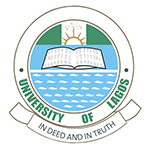
University of Lagos
-
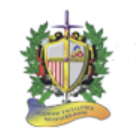
Benson Idahosa University
-
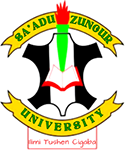
Bauchi State University
-

Federal University of Technology, Akure
-

Tai Solarin University of Education
-
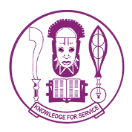
University of Benin
-

Bayero University Kano
-

Ahmadu Bello University
-

Madonna University
-
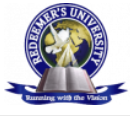
Redeemer's University
-

Mesoamerican University
-

Istmo University
-

Mariano Galvez University of Guatemala
-

Regional University of Guatemala
-

Galileo University
-

Francisco Marroquín University
-

Rafael Landívar University
-

University of the Valley of Guatemala
-

University of San Carlos of Guatemala
-

Technological Institute of Tlaxcala Plateau
-

Golfo University
-

Technological University of South Sonora
-

Technological University of Huejotzingo
-

Tizimín Institute of Technology
-

Chilpancingo Institute of Technology

